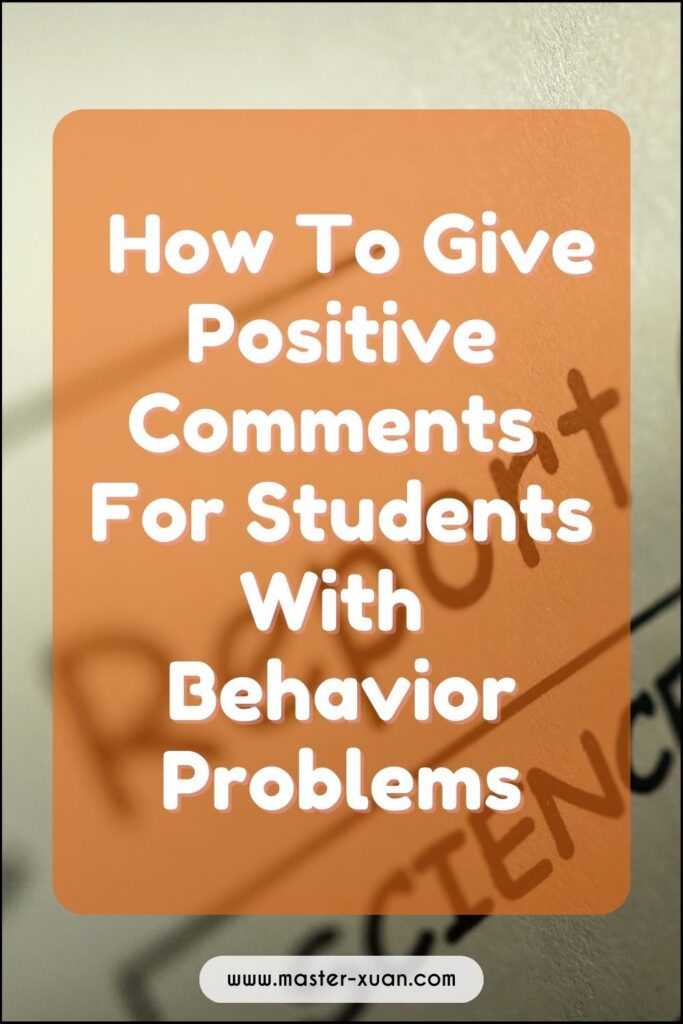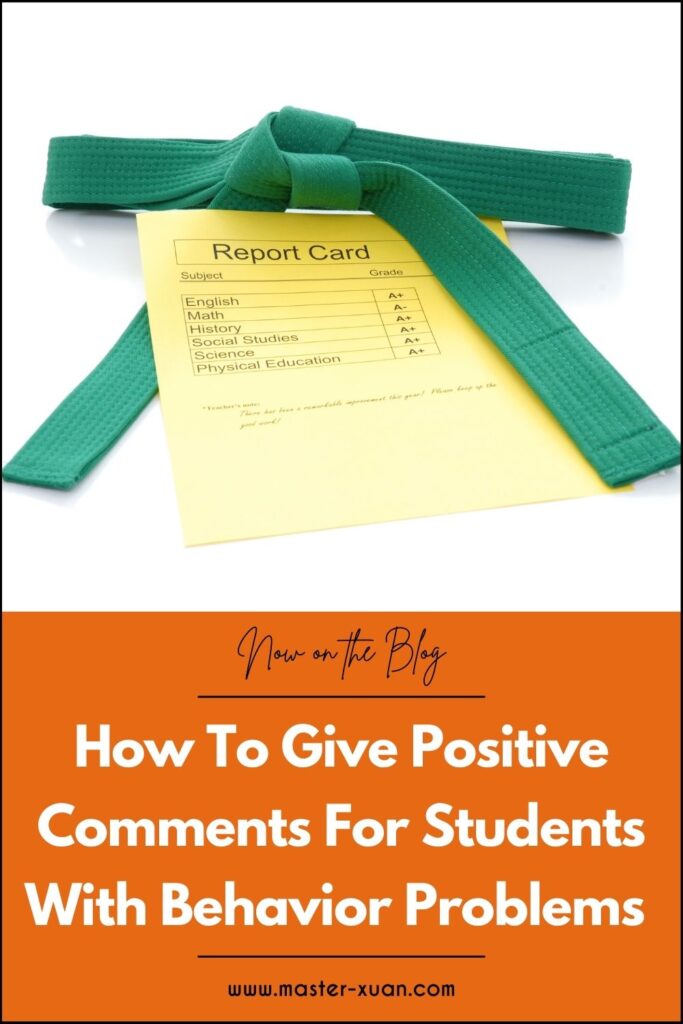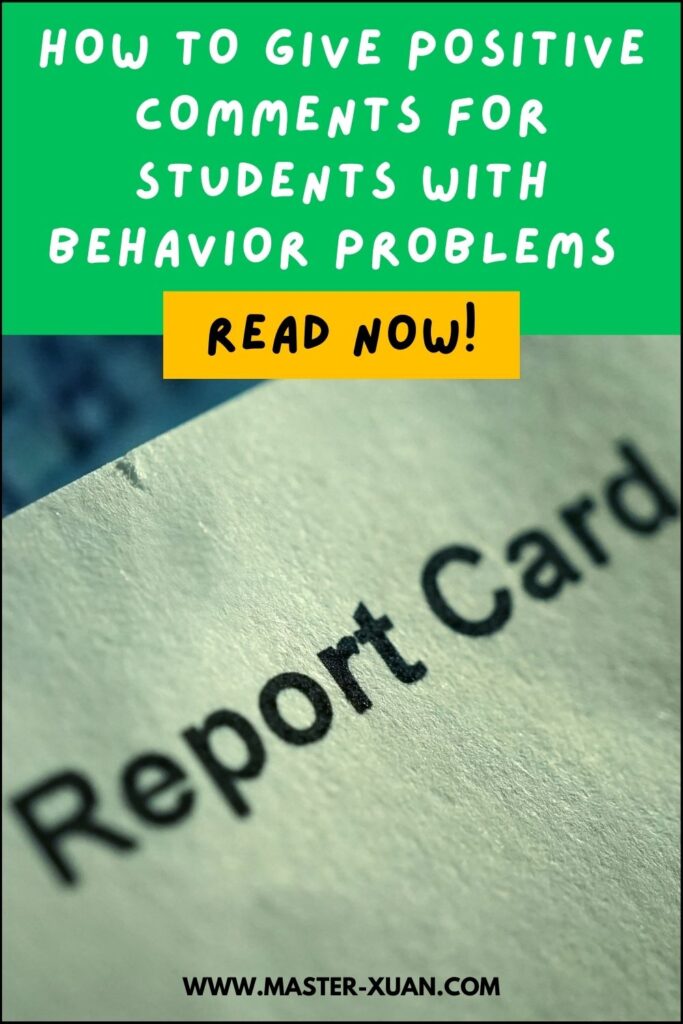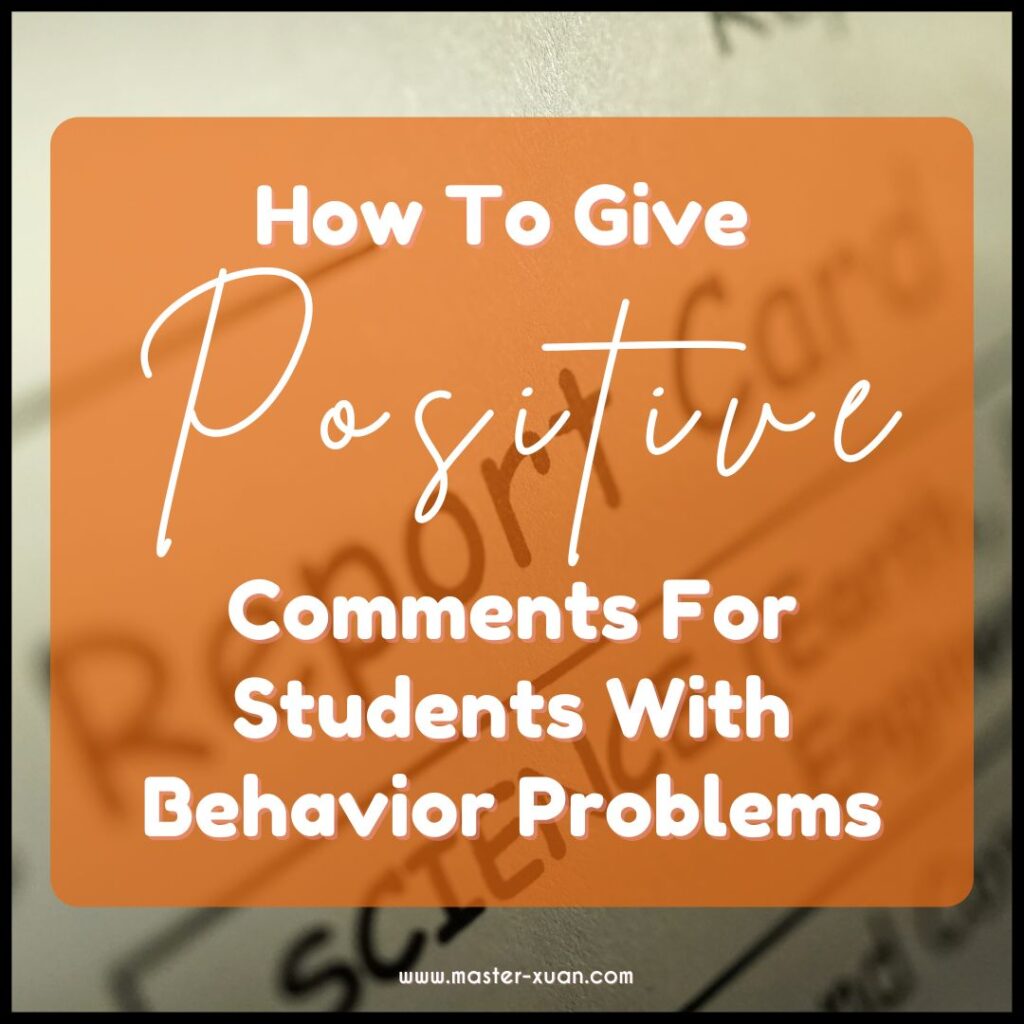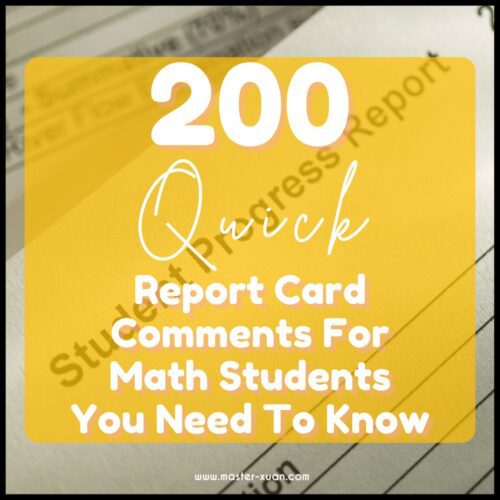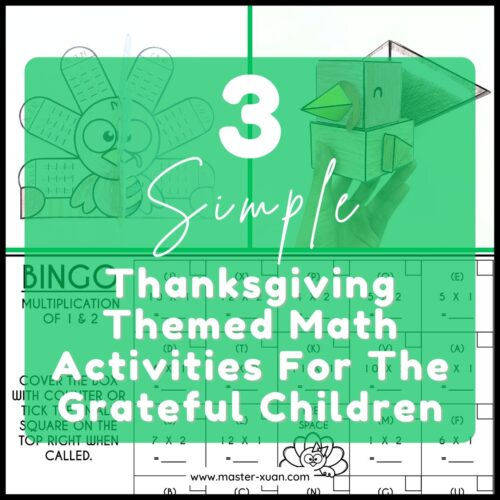Are you struggling to give positive comments for students with behavior problems? Then read this blog post!
It can be tough to find positive things to say about students who consistently push our buttons. But remember, every child has something unique to offer, and with the right approach, we can help them discover their potential. So read this blog post to gain some inspiration.
In this blog post, we’ll explore two effective strategies for writing positive report card comments:
- Replacing negative words with positive alternatives: This approach helps to soften the impact of negative feedback and maintain a positive tone. This is essential when in the situation whereby parents can’t listen to anything negative about their child.
- Using encouraging language that focuses on improvement: By emphasizing the student’s potential for growth, you can motivate them to overcome challenges and strive for success.
I’ll also provide you with specific phrases and examples to help you implement these strategies effectively.
10 Positive Alternative Words For Challenging Behaviors
Instead of: [Student] is defiant.
Try: [Student] is exploring boundaries.
Instead of: [Student] is nosy, like to know what’s inside the teacher’s bag, teacher’s personal life, what other people are talking about etc.
Try: [Student] is inquisitive and curious about the world or other people’s experiences.
Instead of: [Student] is not focusing in class.
Try: [Student] often process various information at the same time.
Try: [Student] likes to multi-task when doing their work.
Instead of: [Student] is talkative.
Try: [Student] is a good communicator.
Instead of: [Student] is disruptive.
Try: [Student] is eager to share their ideas and thoughts.
Instead of: [Student] is lazy.
Try: [Student] prefers a slower and unhurried pace.
Try: [Student] has a relaxed approach to learning.
Instead of: [Student] wants attention.
Try: [Student] loves to speak out his/her needs.
Instead of: [Student] likes to doodles on their math worksheets.
Try: [Student] likes to show his/her creativity on their math worksheets.
Instead of: [Student] is dramatic.
Try: [Student] is expressive and likes to share stories with the class.
Instead of: [Student] is stubborn.
Try: [Student] is persistent and determined.
7 Phrases To Change Negative Comments To Positive Comments
How to write negative comments in a positive way for students?
As you write constructive report card comments, use encouraging language that focuses on the student’s opportunity for improvement.
For example, instead of describing a student struggling with listening as a “bad listener,” remark that the student “would benefit from listening more carefully.”
Below is 7 phrases that will help you transform negative comments into positive and constructive feedback:
1) “is learning to”
- [Student] is learning to manage their time more efficiently in class.
- [Student] is learning to follow the classroom rules and is developing good self-regulating skills.
- [Student] sometimes needs a rule reminder to stay on task but is learning to listen to others.
- [Student] is learning to not let himself/herself become distracted by those around him/her.
- [Student] is learning how to listen to instructions better.
2) “needs to work on”
- [Student] needs to work on being more diligent with his schoolwork.
- [Student] needs to work on clear boundaries.
- [Student] needs to work on showing more appropriate behavior when interacting with classmates.
- [Student] needs to work on listening to directions more attentively during lessons.
- [Student] needs to improve on working independently and be sure to ask for assistance only when it is needed.
- [Student] needs to work on organizing their thoughts more clearly before speaking to improve clarity.
3) “with support”
- With support [Student] is developing self-monitoring skills to enable them to stay on task.
- With support [Student] is beginning to stay on task with activities until completed.
- With support [Student] is learning to complete tasks in a timely manner and to an acceptable standard.
- With support [Student] is able to listen attentively during group sharing times.
4) “is encouraged to”
- [Student] is encouraged to demonstrate more responsible attitudes and behavior in the classroom.
- [Student] is encouraged to be more responsible in completing tasks without needing regular reminders.
- [Student] is encouraged to use time wisely to finish tasks in the time required.
- [Student] is encouraged to ask for clarification when they do not understand something, rather than remaining silent.
- [Student] is encouraged to check his/her work before he/she hands it in.
5) “would benefit from”
- [Student] would benefit from showing a greater desire to contribute ideas in class.
- [Student] would benefit from participating more in class discussions to build their confidence in public speaking.
- [Student] would benefit from slowing down and reading the set questions carefully.
6) “work on the goal of”
- [Student] could work on the goal of improving the presentation of their written work.
- [Student] could work on the goal of using appropriate language at all times.
- [Student] could work on the goal to be attentive during instructions and lessons without the frequent reminders.
7) “finds it difficult”
- [Student] finds it difficult to work with others and prefers to work alone.
- [Student] finds it difficult to focus in class, which harms his/her ability to engage well with class activities and assignments.
Tips To Write Positive Comments For Students With Behavior Problems
1. Focus on Positive Behaviors and Progress
- Highlight specific instances of positive behavior: “John has shown improvement in his ability to follow classroom rules and complete assignments on time.”
- Acknowledge small steps: “Maria has made progress in controlling her impulses during group activities.”
- Celebrate personal growth: “David has shown increased self-control and is better able to handle frustration.”
2. Use Positive Language
- Avoid negative labels: Instead of “disruptive,” try “energetic.”
- Emphasize strengths: “While [student’s name] may sometimes struggle with [behavior], they excel at [strength].”
3. Offer Encouragement and Support
- Express belief in their potential: “I am confident that [student’s name] has the ability to overcome these challenges.”
- Suggest strategies for improvement: “With additional support and practice, [student’s name] can develop the skills they need to succeed.”
- Offer support and resources: “We are committed to working with [student’s name] and their family to address their needs.”
4. Focus on Goals and Future Success
- Set achievable goals: “Together, we can work towards [specific goal, e.g., improving listening skills].”
- Express optimism for the future: “I am optimistic that [student’s name] will continue to grow and develop as a learner.”
Format To Write Positive Report Card For Students With Some Behaviour Problems
[Student’s Name] has shown [positive quality, e.g., resilience, perseverance] throughout the school year.
While they have faced challenges in [specific area, e.g., following classroom rules, completing assignments on time], I believe they have the potential to overcome these obstacles.
Despite [specific challenges], [student’s name] has demonstrated [positive behavior, e.g., kindness, empathy].
By focusing on [specific goals, e.g., improving listening skills, developing organizational skills], we can work together to help them reach their full potential.
I am committed to providing the support and resources needed to ensure [student’s name]’s success.
Format To Write Positive Report Card For Challenging Students
[Student’s Name] has faced significant challenges this school year, particularly in [specific areas, e.g., following classroom rules, completing assignments].
While there have been moments of [positive behavior, e.g., brief periods of focus, occasional acts of kindness], it has been difficult for them to consistently demonstrate positive behavior.
I am committed to working closely with [student’s name] and their family to identify strategies that can help them improve.
With additional support and resources, I believe they have the potential to make progress.
Final Thoughts
Writing positive comments for students with behavior problems are essential for creating a supportive and encouraging learning environment.
By replacing negative words with positive alternatives and using encouraging language, you can help students develop a more positive self-image and motivate them to overcome challenges.
Remember, every child has the potential to succeed. With the right approach, we can help them discover their strengths and reach their full potential.
Related Read: 365 Daily Positive Goal Affirmations To Help You Achieve Success
This may be useful to you: Conference Progress Report & Student Report Card | FREEBIE
Here are some pins that you can save to bookmark this post. Save them to your Pinterest Board now! ↓
